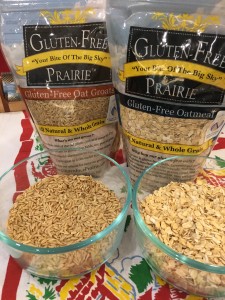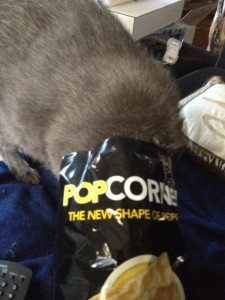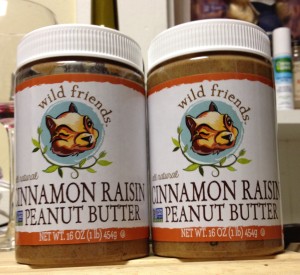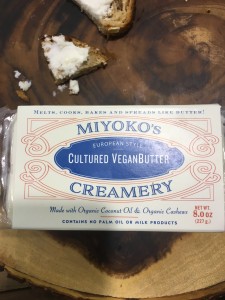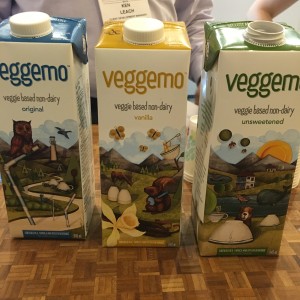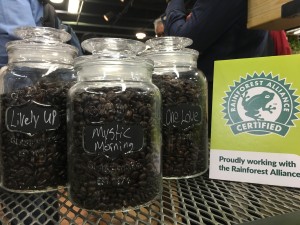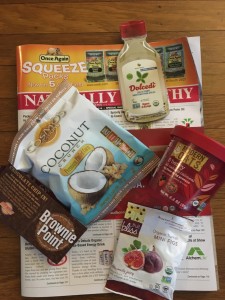Inspired by Jenna Blumenfeld’s article, 5 food trends that should end in 2018, I offer you Six Food Trends That Need To Die Immediately. (For the record, I’m on board with all of Jenna’s recommendations–erythritol [I would expand this to “overuse of sugar alcohols”], bottled water, protein overload, natural flavoring [at least where the flavoring ingredients can be described legally and accurately], and “pixie-dusting,” which is throwing in a dash of some ingredient like turmeric or reishi and then splashing claims about the ingredient on the packaging even though there isn’t even a single serving of the ingredient in there.)
Six Food Trends That Need To Die Immediately
“Clean Eating.” I love the idea behind clean eating–eat more produce, more whole food, fewer things that fall into the category of over-processed junk food. It pre-dates the zany blogger-amplified contemporary “clean eating” by years. See, for example, Tosca Reno’s series of books (influencer link) which started in 2007 and focus on healthy and nutritious eating, not a ton of restrictive rules. (BTW, there is LOTS of processed food that is not over-processed. A few examples: fruit that is washed, sliced, and frozen; shredded and bagged salad; simple pico de gallo in a tub.) More apples, more carrots, fewer Twinkies, fewer Fruit Loops. I really loathe the actual term, “clean eating.” It implies that anything that doesn’t fall into the approved definition is dirty or contaminated. It’s a way of letting disgust define your eating (or It’s just one step from “clean eating” to dietary snobbery and an attitude of superiority. The term is readily accepted in most circles, but it’s easy to take it too far and twist a basically fine idea into an obsession or an eating disorder such as orthorexia. In my own experience, I have a friend who became so particular about the food she was eating that when she went to visit her parents there was “nothing to eat.” That might sound normal if you grew up in a meat-and-potatoes Midwest suburb, but her parents own and operate a produce farm and orchards. I’m not the only critic of “clean eating;” check out the evaluations by Vice, Vogue UK, a variety of other publications (you can use Google to find more), and the Daily Mail UK‘s piece on how clean eating hurts women. There’s even a film on the subject, Clean Eating–The Dirty Truth. Let’s continue to believe in, and advocate for, healthy eating and access to nutritionally dense food like fresh produce for ALL people, but let’s quit using judge-y language to do it, eh?

“Natural.” The word natural conjures up all sorts of wholesome images, and the people marketing to you know this. The problem is that the word “natural” is susceptible to all sorts of interpretations. I don’t care if you use the word with your own definition. What I take issue with? Using the word “natural” on consumer products and food. Why? Unlike many of the words on your food and household products–words like juice, cheese, and organic–the term “natural” has no legal meaning. It’s not defined by the FDA. This means anyone can put it on any package with any intended meaning. Almost worse, it means a small group of lawyers are wasting limited judicial resources on lawsuits. There have been lawsuits challenging the use of the word natural on products that contain GMO corn, high-fructose corn syrup, types of vanilla, xanthan gum, and for products such as green tea that when tested had “trace levels” of glyphosphate, juice made from concentrate, cheese and yogurt made from milk from cows that ate GMO grains, and pita chips with B vitamins created synthetically but identical in every way to those found in nature. You can read more and find links on this Washington Post article. There are two easy solutions to this problem. One, ban the use of the word “natural” on all consumer products. (No one is going to like that solution.) Two, require any product using the word “natural” to include a footnote that states “the term natural has no legal meaning, and is not a guarantee of the quality or origin of this product.” There are other ways to resolve the “natural” dilemma, of course, but if we wait for the FDA to step in my great-great-great granddaughter will be president.
P.S. I’d like to remind you that “natural” does not have the same meaning as “healthy” or “good for you.” A few 100% natural items to consider: cyanide, crocidolite asbestos, white oleander, poison dart frogs, black widows, volcano, cobras, certain bright red mushrooms, hemlock, ticks, manure, MRSA, listeria, malaria, salmonella…and the list goes on.
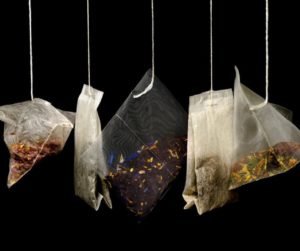
Detox, tea-tox, pre-tox, cleanse. Everything marketed in this category makes me want to vomit because it is so grossly misleading that it is unconscionable. Worse, many of the recommended practices can cause health problems in healthy people. But let’s start from the top: The term “detox” is used in the medical realm to refer to medical interventions for a person who is physically dependent on a drug and treatment of the associated withdrawal symptoms. “Detox” may also used in the case of an accidental poisoning. For an actual, real detox, there is science to explain exactly what toxic substance is being removed from the body, and how it is being removed. For example in many case of poisoning, activated charcoal is used to absorb the poison (“activated” means it has been treated to make it more absorbent, allowing it to soak up more) and generate a laxative effect to help it exit the body. (There is chemistry to explain how this works, and you can go look it up.) Commercially marketed “detox” and “cleanse” products claim there are mysterious “toxins” built up in your body and if you release them from your body by taking the magic pill or drinking the special smoothie, you will improve your health. Even if they specify a scary-sounding “toxin” (heavy metals!) none of these products will explain to you which toxin(s) they allegedly remove, nor will they explain the chemical and biological means by which they allegedly remove these toxins. (Because they don’t.) There’s not a single, credible, peer-reviewed study showing any detoxes achieve the results they claim–all detox claims are 100% hype. For the amount of money going into this market, that’s beyond suspicious. Worse, some allegedly detoxing things can be dangerous. Colonic irrigation has no proven benefits, for example, and most “tea tox” products either contain ingredients that sound nice but do nothing or known laxatives (such as senna)–and of course they are marketed as “100% natural.” Ugh.
As for the term cleanse, if your kidneys and liver are functioning properly, you are “cleansing” right now. Go look at a basic human anatomy text and read about the circulatory and urinary systems. (BTW, if your kidneys and liver are NOT functioning properly, you should be under medical care–poorly functioning kidneys may require dialysis to keep waste products out of your bloodstream, for example.) If you are afraid your body has bad stuff in it that needs to get out, start by “cleansing” your kitchen of all the things containing stuff you don’t want in your body.
If you're enjoying this post, why not share with your friends?Click To TweetAlkaline everything. Let’s go back to basics. Your body works very hard to maintain a state of equilibrium called homeostasis. Basically, your genes are pre-programmed to know what is best for your body on any given scale. Think about your body temperature; your body naturally regulates to keep you from getting too hot or too cold (you sweat in the heat, and your body sends more blood to your core in the cold, among other adaptations). In chemistry, everything has a pH based on how acidic it is. At one end of the 0 to 14 scale is 100% acid (pH 0) and on the other end is 100% not-acid, also called alkaline (pH 14). Just like your body adapts to keep your temperature at the right place, it also adjusts to keep your pH at the right place. Different parts of your body have different needs in terms of pH, for example your stomach creates an acidic environment to help you digest food while your blood is slightly alkaline. Your body (and specifically your kidneys) works really hard to keep your blood at the right pH because allowing it to get even a little bit too acidic OR a little bit too alkaline means you will die. While I love the idea of getting Americans to eat more green vegetables, you’re never going to “alkalinize” your body by eating them. If you did, you’d die. Oh, and in case someone tries to argue that a change in urinary pH is proof in support of this unscientific nonsense, remember that urine is a waste product kept in a holding tank (the bladder) so the body can get rid of it.

Profiteering via ignorance and disinformation. This is so rampant in the consumer marketplace, in every category of product. This is a sugary kid cereal advertising it is made with whole grains–even if true, that just makes it slightly better than the non-whole-grain alternative, it doesn’t turn Cap’n Crunch into health food. This is products touting that they are non-GMO when there isn’t even a GMO version of that product or its ingredients available (e.g. salt, popcorn, and EVERY product that doesn’t contain squash, cotton, soybeans, field corn, papaya, alfalfa, sugar beets, canola/rapeseed, potato, and one type of apple which are the only available GMO crops) and failing to mention that no one has so much as gotten a tummyache from a GMO. This is any product that relies on consumer ignorance or fear to help sell itself. We are better than this. Consumers deserve to be educated and know the facts, and companies should be working to make this knowledge easier to obtain, not harder.
Nutritional Imperialism. As Americans, we live in one of the richest nations on Earth, one that wields a considerable amount of political and economic power. Unfortunately, we collectively end up pillaging other nations to support our needs and wants. All of those exotically sourced ingredients? Many have a negative impact on the environment and the economy in their nations of origin. Take palm oil, for example. As demand increases, we’re threatening the orangutan population and rapidly increasing deforestation. (Details at Rainforest Action Network, Say No To Palm Oil, World Wildlife Fund, Union of Concerned Scientists.) Companies are responsive to consumer demand, so why not demand the companies that make the products you buy use sustainable palm oil or an alternative? (There’s a debate on whether palm oil can be truly sustainable, but I’ll leave you and Google to that.) Palm oil isn’t the only bad guy, it’s just an example.
One of the alternatives to nutritional imperialism is trade that helps build and sustain the local economy while respecting the environment. This isn’t necessarily the same as Fair Trade, which is a specific third-party certification that can be cost-prohibitive for small companies. A few companies doing this type of work are Kuli Kuli, which has helped women farmers in Ghana, Haiti, and Nicaragua earn an income and support their families, and Dean’s Beans, which has relationships with each of the farmers that grow their coffee beans and actively supports the farmers and communities that grow them.
Which food trends would you like to vanish?
